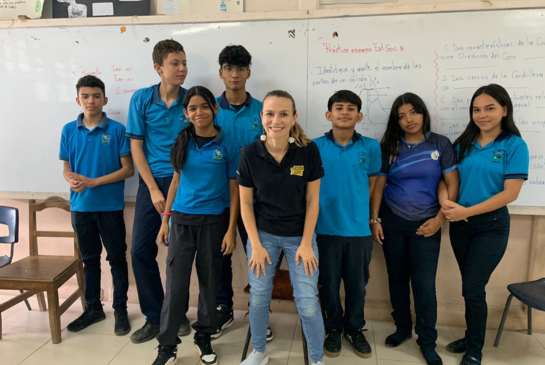Fundación Acción Jóven, Costa Rica
The High Opportunity Schools (HOS) project, promoted by Fundación Acción Joven, seeks to reduce school exclusion in public secondary schools and strengthen inclusive and protective educational environments. It is currently implemented in 7 schools located in San José, Cartago, Guanacaste and Puntarenas, directly benefiting 490 students and 70 teachers and administrative staff.

HOS is developed through four strategic modules:
Module of Work with Institutional Permanence Teams (EPIs):
68 teachers were trained in early warning protocols to detect and address risk factors for student exclusion.
Peaceful Coexistence Module:
188 students participated in sessions on building life plans, preventing violence and substance abuse, and promoting healthy relationships, ending with recreational activities that strengthen coexistence.

Employment Project Module:
200 young people received training in self-knowledge, résumé writing and interview preparation. In addition, they went on vocational tours that brought them closer to the world of work.
Educational Community Module:
75 students, together with teachers, designed proposals to combat educational exclusion in the “¡Qué Chiva ir al Cole!” contest, in which 3 winning schools received resources to implement their ideas, involving the entire educational community.
Voices from the classrooms
“HOS provided tools for the EPI and the student body to become agents of change. We have seen leadership, commitment and projects that benefit the entire educational community.”
– Maria Auxiliadora Marchena, counselor, CTP Liberia.
“Thanks to the training received, the students have developed key skills for their future”
– Yorleny Carpio, Academic Coordinator, Liceo San Miguel.
Key Impact
HOS has contributed significantly to creating safer, more participatory and inspiring school environments. The comprehensive training of teachers and students has promoted youth leadership, improved coexistence, and strengthened the educational and labor projection of young people in vulnerable situations. Initiatives such as “¡Qué Chiva ir al Cole!” have promoted practical and sustainable solutions, strengthening social cohesion and opening doors for socioeconomic mobility.


